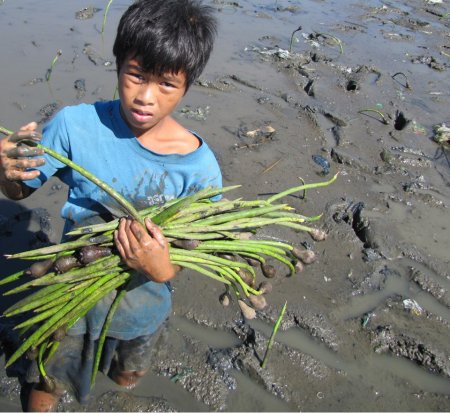West Zone concessionaire Maynilad Water Services, Inc. (Maynilad) has adopted five sites totaling 6.6 hectares (ha) in the Cavite Province for a mangrove rehabilitation program under its “Plant for Life Program”.
“Plant for Life” is Maynilad’s multi-site reforestation and afforestation program that aims to help arrest the environmental degradation that is threatening the reliability and quality of water supply.
Since 2013, Maynilad and its partner organizations have planted some 35,000 mangrove propagules in areas around the Canacao-Bacoor Bays, which forms part of the Manila Bay. With 350 volunteers from public and private organizations, and local communities, Maynilad has rehabilitated mangrove areas in the cities of Bacoor and Cavite, and the municipalities of Kawit, Noveleta and Rosario in the Cavite province.
“Mangroves are essential in protecting shorelines and can serve as a barrier for storm surges,” said Maynilad President and CEO Ricky P. Vargas. “Rehabilitating mangrove forests is an important part of our carbon sequestration program because they absorb up to three to five times the amount of carbon into the soil compared to other forest types,” he added.
Aside from reducing carbon in the atmosphere, mangroves are also known to host biodiversity by proving food for fish and sanctuaries for birds and fish.
Maynilad is the largest private water concessionaire in the Philippines in terms of customer base. It is the agent and contractor of the Metropolitan Waterworks and Sewerage System (MWSS) for the West Zone of the Greater Manila Area, which is composed of the cities of Manila (certain portions), Quezon City (certain portions), Makati (west of South Super Highway), Caloocan, Pasay, Parañaque, Las Piñas, Muntinlupa, Valenzuela, Navotas and Malabon all in Metro Manila; the cities of Cavite, Bacoor and Imus, and the towns of Kawit, Noveleta and Rosario, all in Cavite Province.
Photo: A volunteer from the local community in Noveleta holding mangrove propagules for planting. Maynilad provides an alternative livelihood to local communities in its project areas by having them nurture propagules and provide boat-ride services for mangrove-planting volunteers to the forest sites.
